Training opportunities are being expanded for FLA lawyers

Completion of the Council of Europe HELP program courses and obtaining the relevant certificate will be taken into account by the Higher School of Advocacy when calculating the points that must be gained by the lawyers of the FLA system in accordance with the Procedure for the Advanced Training of Advocates of Ukraine.
This decision was recently made by the Bar Council of Ukraine.
It is also planned to create a working group that will study the best practices of Ukrainian lawyers who have experience and desire to conduct special advanced training courses on legal aid.
As a reminder, in accordance with clause 21-1 of the Procedure for the Advanced Training of Advocates of Ukraine, approved by the decision of the Bar Association of Ukraine dated 03.07.2021 No. 63, advocates who have submitted information on inclusion in the Register of Advocates Providing Free Secondary Legal Aid or have concluded a contract or contracts for the provision of free secondary legal aid must receive at least two credits for training on free legal aid per year.
From now on, the certificate of completion of the Council of Europe courses on the HELP platform (the courses are free of charge) will be counted as training for lawyers cooperating with the FLA system to fulfill these requirements of the Procedure.
The relevant amendments to the Procedure were proposed during a meeting of the Bar Council of Ukraine by Valentyn Gvozdiy, the Vice President of UNBA, BCU. The day before, he held a working meeting with the HELP project management.
«It's a training platform and they hold a lot of events. They have already translated 33 products for Ukraine. Among them are those devoted to legal aid, - said Gvozdiy. - For our situation, topics on hate crimes, human rights in the Armed Forces, and others may be interesting. The courses are available on the HELP website and Ukrainian lawyers can study remotely».
For reference. The Council of Europe's HELP (Human Rights Education for Legal Professionals) program is an educational program that has been implemented within the Council of Europe since 2006. It is implemented in accordance with Recommendation (2004)4 of the Committee of Ministers of the Council of Europe on the application of the Convention for the Protection of Human Rights and Fundamental Freedoms in university education and the training of legal professionals, including lawyers.
The program is necessary, among other things, because the European Court of Human Rights is trying to reduce the number of complaints it receives by training legal professionals to effectively and correctly apply the Convention in their work.
The HELP network consists of representatives of national institutions for the in-service training of judges and prosecutors and bar associations from the CoE member states. The participants meet annually to share experiences, consult each other and adopt a roadmap containing topics that will be prioritized in the development of new HELP training programs and materials.
Popular news
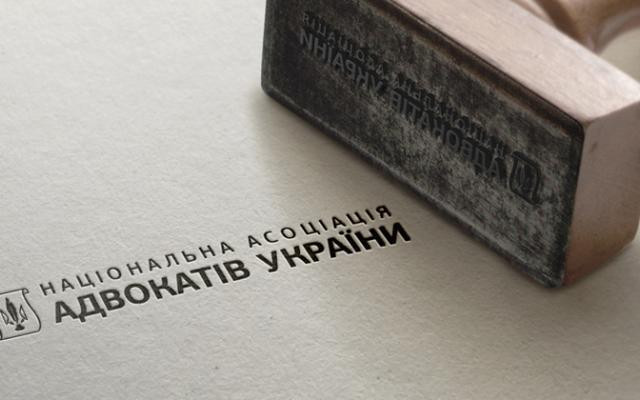
Self-government
The BCU demands a review of the composition of the government working group on reforming the advocacy profession
The President of the UNBA, BCU Lidiya Izovitova, appealed to the Cabinet of Ministers of Ukraine to review the composition of the working group on improving legislation in the field of advocacy and legal practice.

Discussion
Why lowering the age of marriage lacks legal logic
Although until 2012 there was a provision in family law that allowed children to marry from the age of 14 under certain circumstances, its return to Ukrainian law would contradict international obligations and the logic of criminal law.
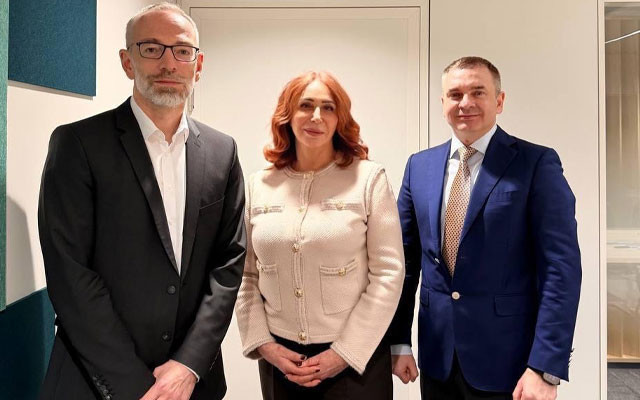
European integration
Open dialogue between the UNBA and the European Commission on the path to EU
The Ukrainian National Bar Association held a working meeting in Brussels with Mr Wolfgang Nozar, Head of Unit for Governance, Rule of Law and Financial Assistance, Directorate-General for Enlargement and Eastern Neighbourhood (DG ENEST), European Commission.

Self-government
A report on Ukrainian advocacy was presented in the European Parliament
Can a shadow report on advocacy replace the political framework of the Roadmap on the rule of law with demands for the restructuring of self-government? Where is the line between accountability and the seizure of institutions? And how can we respond to narratives with data rather than impressions?
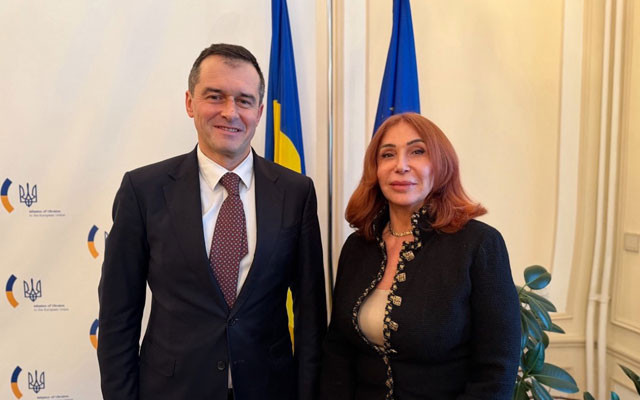
European integration
UNBA and Ukraine's representation to the EU have synchronized their priorities
On February 5, in Brussels, the President of the UNBA, BCU Lidiya Izovitova held a working meeting with the Ambassador Extraordinary and Plenipotentiary of Ukraine, Representative of Ukraine to the European Union Vsevolod Chentsov.
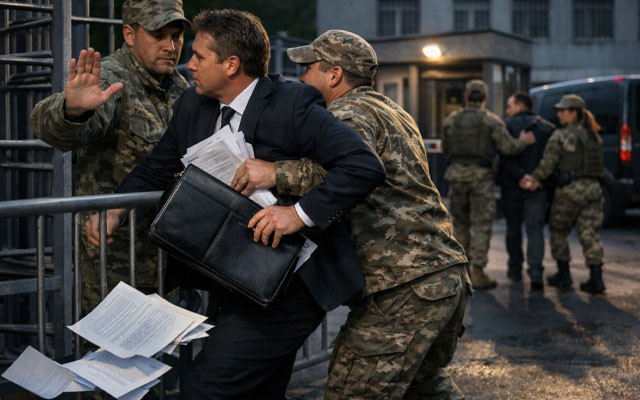
Guarantees of the practice of law
Proceedings opened following attack on advocate in Dnipro
The Committee for the protection of advocates' rights and guarantees of legal practice of the UNBA appealed to law enforcement agencies in connection with an advocate's report of an attack while performing his professional duties. The information was entered into the Unified Register of Pre-trial Investigations and a pre-trial investigation was initiated.
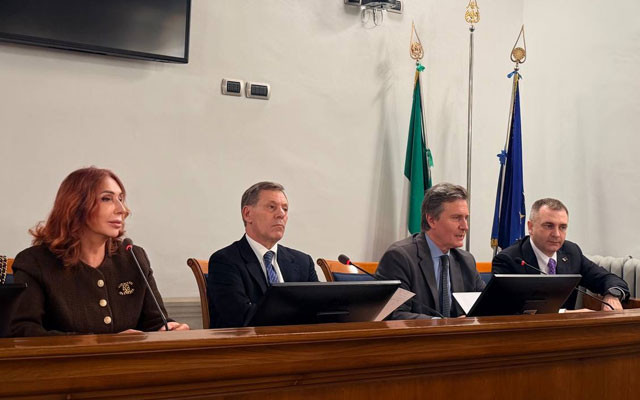
Interaction
«With us — to Europe»: Italian advocacy supports UNBA initiatives
On January 30, a meeting was held in Rome between a delegation from the Ukrainian National Bar Association and the National Bar Council of Italy (Consiglio Nazionale Forense, CNF) on the standards and practices of the legal profession and their significance for Ukraine's European integration process.
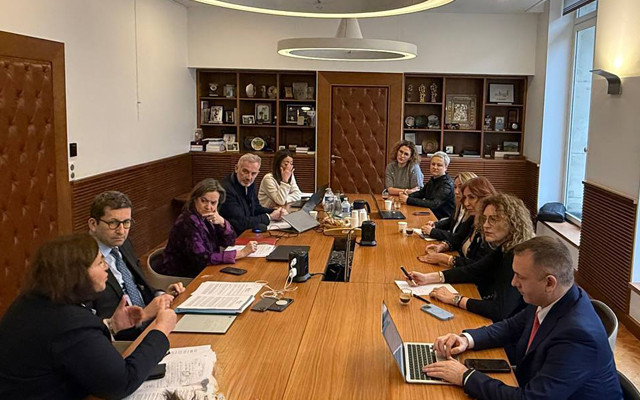
Interaction
France confirms cooperation with UNBA on reforms in the field of the rule of law
On January 29, a working meeting between representatives of the Ukrainian National Bar Association and the French National Bar Council (Conseil National des Barreaux, CNB) took place in Paris.
Publications

Volodymyr Matsko Extradition as a systemic form of rights violations

Victoria Yakusha, Law and Business The anti-corruption vertical cannot «take care» of the Bar as an institution, - acting head of the HQDCB

Censor.net Protecting advocates – protecting justice: addressing concerns about the new law

Ihor Kolesnykov A BRIEF SUMMARY REGARDING THE APPLICATION OF THE ORDER ON EXTENDED CONFISCATION IN LATVIA REGARDING FINANCIAL ASSETS OF…

Valentyn Gvozdiy WORKING IN A WAR ZONE

Lydia Izovitova Formula of perfection

Sergiy Vylkov Our judicial system is so built that courts do not trust advocates

Iryna Vasylyk Advocacy in the proclamation of Independence of Ukraine
